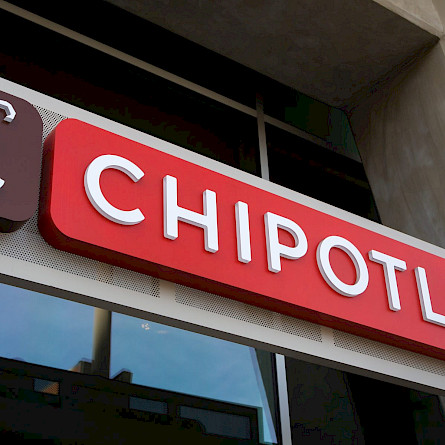The definition of a scandal can be quite broad. I categorize a scandal as an event that provokes strong negative public opinion and is highly publicized. It will generally make headlines.
When a company causes scandal, its stock price often drops significantly. Any investor looking to acquire undervalued stocks must therefore examine and analyze such situations. Here are four scandals that have made headlines in the past, but which did not have a long-term effect on the targeted company.
Chipotle is the classic example of a temporary scandal. Between 2015 and 2016, a series of E. coli cases were reported by customers at certain Chipotle restaurants. This made headlines and consumers lost trust in the chain. These types of scandals are usually forgotten a few years later. A similar example is McDonald’s in 2014, which was involved in a scandal in China over expired food.
Another example I like is Equifax in 2017. The company announced that the personal information of 147 million people had been compromised because of a cyberattack. This data breach made headlines and caused a palpable loss of trust in the company.
In 2016, Wells Fargo was involved in a scandal for opening millions of unauthorized accounts and charging fees on those accounts. The overly high sales targets and the compensation system led to bad employee behaviour.
What do these four examples have in common? A few years later, these scandals have largely been forgotten by consumers and investors.
Be careful! Not all scandals turn into stock market successes. Consider, for example, the scandal related to the opioid crisis in the United States. Some companies like drug distributors Cencora and McKesson did well while companies like Endo and Teva were significantly affected. Others like Mallinckrodt went bankrupt.
In my opinion, investors should ask themselves three main questions when evaluating a situation involving a scandal:
- Have the company’s long-term growth prospects been damaged?
- Is its financial health at risk?
- Does the stock’s valuation largely discount the risks involved?
One type of scandal that I try to avoid is that of financial scandals and corporate fraud. Specifically, I stay away from companies that are accused of falsifying their financial statements. The cases of Enron and Tyco are good examples of the dangers associated with such scandals. Falsified financial statements prevent the above-mentioned questions from being answered.
An investor should not jump on every scandal situation. It is important to remember that such situations are always easier to analyze in hindsight. Let us take the case of the scandal involving Boeing and its 737 Max aircraft. Although a few years have passed since the origin of this scandal, I do not believe that its impacts on the long-term performance of the company are yet clear. There can be a fine line between a temporary situation that will be forgotten in a few years and a situation that jeopardizes the future and financial performance of a company.
An investor should also study past scandals to understand and observe the evolution of the impact of a scandal. When a similar situation occurs on another stock, he will be better equipped to make an informed investment decision.
_______
Jean-Philippe Legault is Portfolio Manager at COTE 100.
His blog is published in






